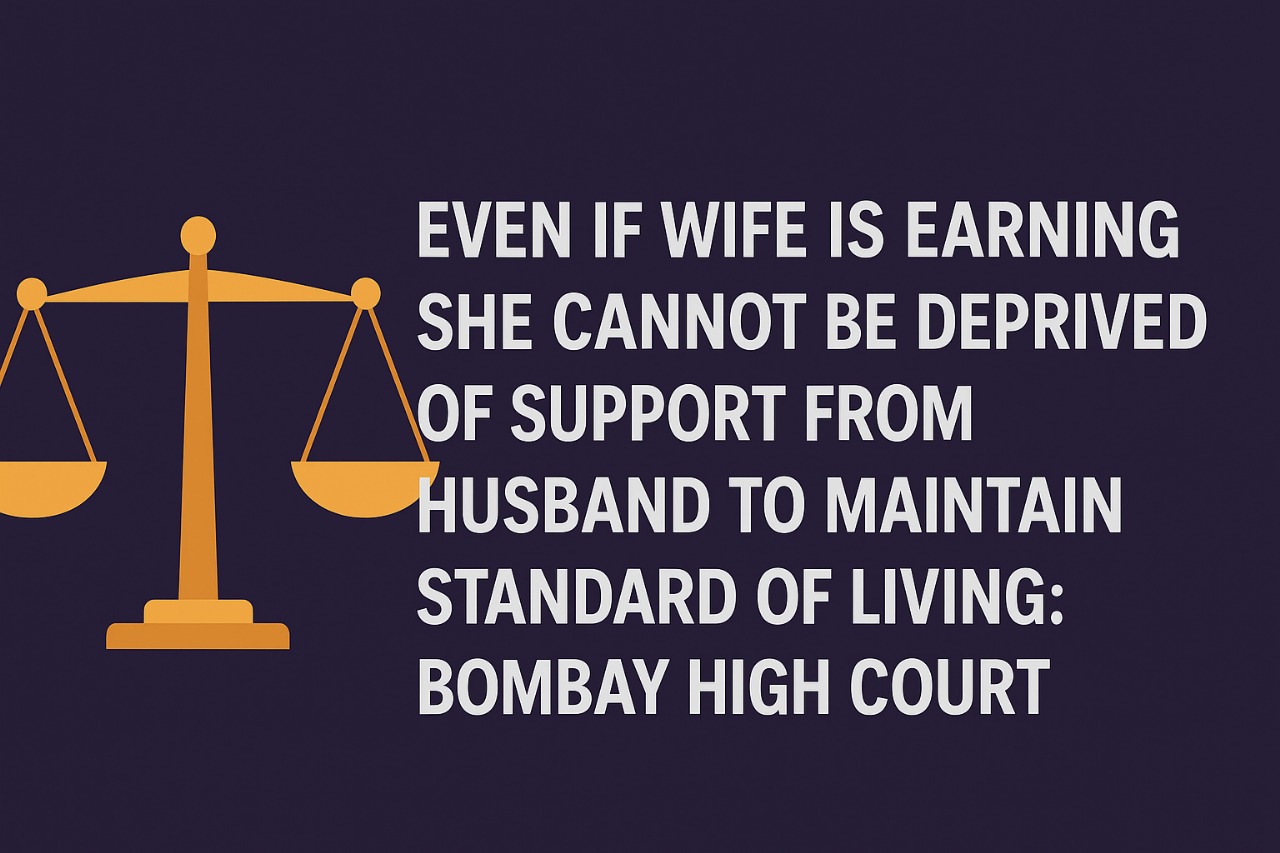Income Alone Is Not Enough
In most matrimonial cases, husbands complain that if the wife is earning, she is no longer eligible for maintenance. But Indian law acknowledges the fact that maintenance is not merely a question of bare subsistence. It involves providing the dependent spouse with the means to live in dignity and not compromise on the standard of living due to the failure of the marriage.
The duty of support arises from the concept that marriage is a union of mutual obligation. This duty does not cease because the wife brings home some of her own money. Courts need to examine if her earnings are stable, adequate, and equal to what she was used to when she lived with her husband.
Standard of Living Matters
In determining maintenance, courts consider a number of things: the economic situation of both spouses, the wife’s needs, reasonable expenses for food, clothing, housing, medical treatment, and other necessities. The standard of living is a significant factor in this determination. If the wife’s own earnings do not provide for these needs on a level equal to that which she had during her married life, then the husband must supplement the difference.
Very often, the earning capacity of the husband far exceeds that of the wife. In this case, the courts insist that the husband must not escape his duty by referring to the small income of the wife. If her earnings are irregular or insufficient, the husband shall continue to make contributions so that the spouse is not driven into compromise or subsistence on others.
Not a Charity but a Right
One must recall that maintenance is not granted by way of charity or as a favor. It is a right granted to a wife who is unable to maintain herself at the same standard as she lived while married. This right acknowledges the disparity in financial situation that inevitably occurs where one spouse gives up earning capacity for domestic duties.
The courts have consistently held that the law has to be interpreted in a manner that upholds this right. Proving merely that the wife is employed somewhere or that she gets a meager income is not sufficient to negate a valid claim for maintenance.
Conclusion
Maintenance rights continue to be one of the strongest guarantees available for economically disadvantaged spouses in India’s family law system. The aim of maintenance provisions in the Hindu Marriage Act, 1955, and the Code of Criminal Procedure, 1973, is not just to avoid destitution but to ensure dignity and economic independence for the dependent spouse. Recently, the Bombay High Court restated a crucial part of this principle — that an income-earning wife is not necessarily disentitled from claiming maintenance from her husband. The Court stressed that the test is not if she earns something, but whether she can maintain the standard of living she had during marriage.
About the Author
Agnimitra is a law student at the Department of Law, Hazra Campus, Calcutta University, Kolkata, with a growing passion for legal writing and research. Deeply interested in Intellectual Property Law, International Law, and issues related to Women and Child Safety, Agnimitra enjoys exploring how the law modernizes itself to the changing times of society. Whether it’s through writing articles or diving into legal debates, Agnimitra is always eager to understand and share the evolving nuances of the legal world.

